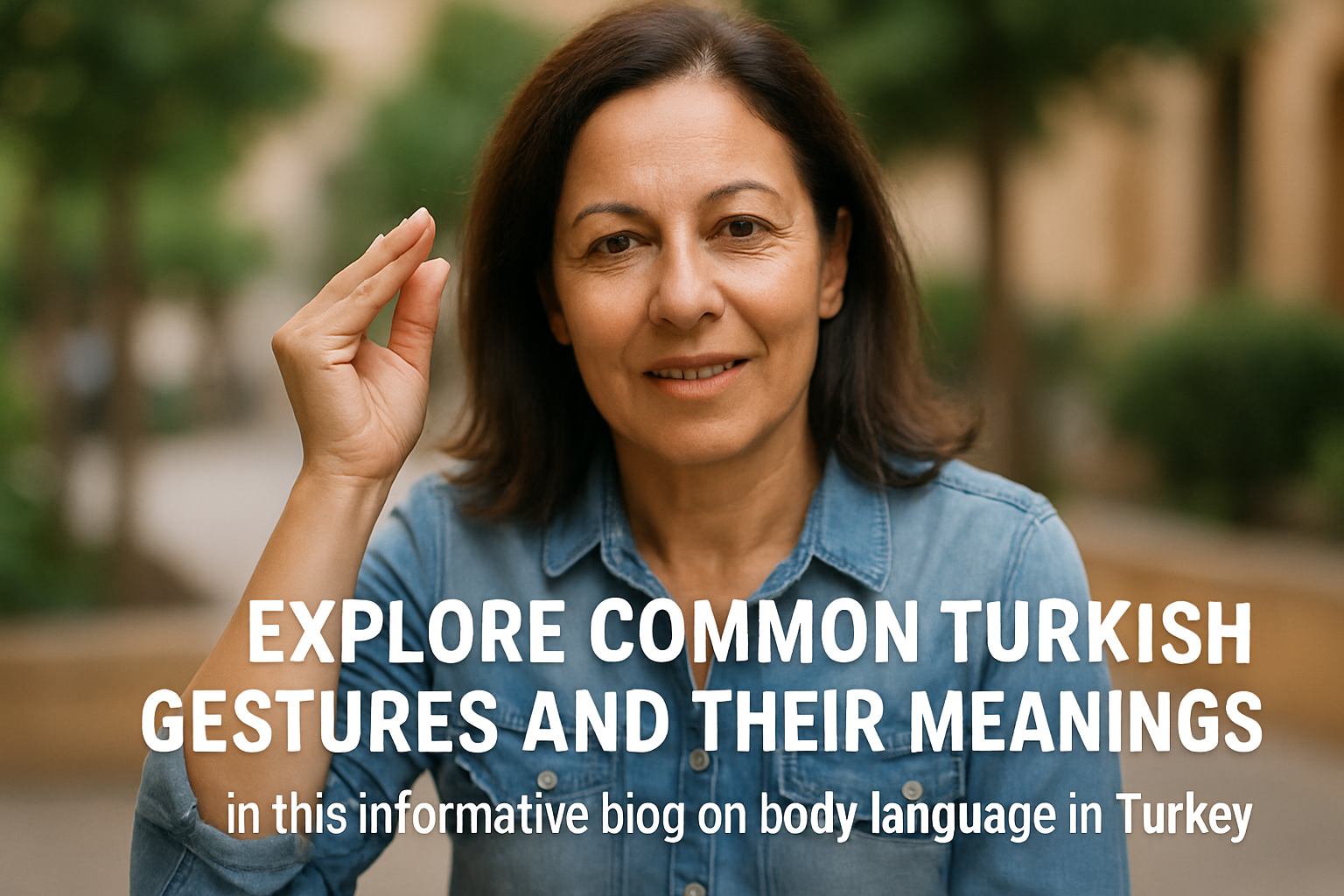Body Language in Turkey: Common Gestures and Their Meanings

Moving to Turkey opens up an exciting chapter for expats, filled with new sights, flavors, and friendships. Yet, understanding Turkish culture goes beyond the spoken word. Whether you’re greeting colleagues, making new friends, or just navigating daily life, body language plays a defining role. For many expats, Turkish gestures may appear puzzling or even contrary to what’s familiar. Misreading these subtle signals can spark confusion or awkwardness. To help you thrive socially and professionally, here’s how to decode Turkey’s body language with confidence.
Greetings: First Impressions Matter
In Turkish culture, first impressions hold important weight. Greetings signal respect, warmth, and intent. Handshakes are common in business and with new acquaintances. Turks usually offer a firm, yet not aggressive, handshake. For close friends or family, various forms of cheek kissing are the norm—usually once on each cheek, starting from the right.
- Use a gentle handshake with steady eye contact in formal situations.
- For women, wait for them to initiate a handshake with men, as some may choose not to for religious reasons.
- Do not rush into physical contact, such as hugs, unless invited.
Failing to recognize these cues may lead to discomfort. Observing others and mirroring their greeting style allows expats to blend in effortlessly and demonstrate cultural respect.
Head Movements: Subtle Yet Significant
Head gestures in Turkey can be surprisingly different from what many expats know. Unlike the common nodding for “yes” and shaking for “no” in the West, Turks may use a slight upward jerk of the head, combined with raised eyebrows and a clicking sound, to indicate “no.” Nodding still means “yes,” but the negative gesture might catch newcomers off guard.
- Upward head jerk with tongue click often means “no.”
- Single nod up and down means “yes.”
- Maintain direct but not prolonged eye contact while speaking, showing engagement and honesty.
Recognizing these head movements can save you from miscommunications, especially in group discussions or negotiations. Turkish friends and colleagues will notice and appreciate your effort to understand these non-verbal cues.
The Power of Hands: Expressions Beyond Words
Turks use hands freely to express agreement, gratitude, or even annoyance. The “thumbs up” is generally positive, similar to many Western countries, but waving your hand under the chin (the “brush-off”) signals contempt or sarcasm. Another common gesture involves placing the hand over the heart, often after a handshake or greeting, to express sincerity or gratitude.
- Hand on heart demonstrates respect and thankfulness.
- Thumbs up is an encouraging sign or agreement.
- Palm facing forward, fingers upward and moving up and down, means “wait” or “slow down.”
- A dismissive wave under the chin stands for dismissal or disapproval; avoid using this without understanding the full context.
Using your hands properly can emphasize your message, show politeness, and prevent accidental misunderstandings. Observing locals and practicing these gestures in context brings you closer to the community and strengthens social bonds.
Facial Expressions: Reading the Room
In Turkey, facial expressions reflect genuine emotion and thoughtfulness. Smiles are polite and welcoming, but excessive grinning might appear insincere. Turks often raise their eyebrows for emphasis during conversation or to acknowledge someone from a distance. A furrowed brow or pursed lips can indicate disapproval, focusing attention, or confusion.
- Moderate smiling fosters approachability and trust.
- Raised eyebrows signify surprise, acknowledgment, or curiosity.
- Brief frowns may mean deep thought, not always annoyance.
- Avoid exaggerated expressions unless you see locals do the same.
By matching your emotional tone to the situation, you show cultural sensitivity and avoid unintentionally offending or confusing those around you.
Gestures to Avoid: Navigating Cultural Sensitivities
Certain gestures that seem trivial elsewhere may hold strong meanings in Turkey. The “OK” sign (forming a ring with thumb and index finger) is considered offensive here. Pointing with your finger can seem rude, especially at people. Instead, use an open hand when directing attention.
- Never use the “OK” hand gesture in conversations.
- Avoid pointing at people; indicate with whole hand or slight head movement.
- Crossed fingers or crossed arms can suggest defensiveness or disrespect in formal meetings.
- Refrain from whistling indoors, which is seen as bad luck.
Remembering these boundaries protects your relationships and keeps interactions positive. When unsure, take your cue from those around you, and when in doubt, ask friendly Turkish acquaintances to clarify the appropriateness of a gesture.
By understanding and adopting Turkish body language, expats build bridges across cultures. These gestures go far beyond words—connecting you to everyday life, boosting your confidence, and showing respect for Turkish customs. With time and observation, reading the room will become second nature, helping you thrive in your Turkish adventure.
